Search
for
Sort by
Research
570-600 / 1000+ results
research Mesenchymal Stem Cells for the Treatment of Skin Diseases
Mesenchymal stem cells show promise for treating various skin conditions and may help regenerate hair.
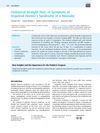
research Unilateral Straight Hair: A Symptom of Acquired Horner's Syndrome in a Neonate
A baby girl's hair turned straight on one side due to a neck tumor and surgery, but it returned to curly as she recovered.
research Diagnosis and Treatment of Methylmalonic Acidemia in 14 Cases
Early diagnosis and proper treatment improve outcomes for methylmalonic acidemia.

research Human Hair Follicle: An Update on Biology and Perspectives in Hair Growth Disorders Treatment
New treatments for hair growth disorders are needed due to limited current options and complex hair follicle biology.

research Simulative Evaluation of Taurine Against Alopecia Caused by Stress in Caenorhabditis Elegans
Taurine might help prevent hair loss caused by stress.
research Botulinum Toxin Type A for the Management of Hidradenitis Suppurativa
Botulinum toxin type A may help treat hidradenitis suppurativa.

research Management of Toxicities of Targeted Therapies
Targeted therapies for lung cancer are effective but require careful management of side effects to benefit patients.

research Prevalence of Female Pattern Hair Loss in Postmenopausal Women: A Cross-Sectional Study
Over half of postmenopausal women experience hair loss, with severity increasing with age, time since menopause, and higher body mass index.
research Excessive Hair Growth Around Local Beta-Interferon Injection Sites for Malignant Melanoma
β-interferon injections for melanoma can cause excessive hair growth at the injection sites.

research Region-Specific Reversal of Epidermal Planar Polarity in the Rosette Fancy Mouse
Hair follicles in the back of the rosette fancy mouse have reversed orientations due to a gene mutation.
research Lack of Significant Association Between Sex Hormone Concentrations and Atopic Dermatitis in Adolescents and Adults in Two Population-Based Studies
Sex hormones likely don't affect atopic dermatitis in adolescents and adults.
research Betapapillomaviruses in the Anal Canal of HIV Positive and HIV Negative Men Who Have Sex with Men
HIV-positive men who have sex with men have a higher rate of anal beta-papillomavirus infections.

research Sensitive Scalp: Diagnosis and Practical Management
For sensitive scalp, treatment is personalized and may include specific medications and hydration, while avoiding stress and irritating products.
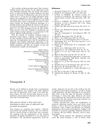
research Viewpoint 4
Skin patterns form through molecular signals and genetic factors, affecting healing and dermatology.

research Topical Minoxidil Therapy for Androgenetic Alopecia
Minoxidil can help regrow hair or slow down hair loss, but results vary among individuals.

research Umbilical Remnant Allograft Application in the Treatment of Erosive Pustular Dermatosis of the Scalp
Using powdered umbilical remnant allograft can effectively treat chronic scalp wounds resistant to traditional treatments.
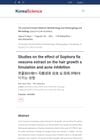
research Studies on the Effect of Sophora Flavescens Extract on Hair Growth Stimulation and Acne Inhibition
Sophora flavescens extract helps hair grow and prevents acne.
research Formulation and Evaluation of Polyherbal Shampoo to Promote Hair Growth and Provide Antidandruff Action
The shampoo named Herbello, made with natural ingredients, promotes hair growth and fights dandruff.
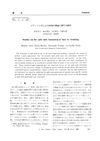
research Studies on the Split Ends Formation of Hair by Brushing
Ethyl Carbitol is the best at preventing split ends in permed hair.
research Ovarian Vein Sampling, and Serum and Urine Testosterone Monitoring in Ovarian Leydig Cell Tumors: A Report of Two Cases
Ovarian vein sampling helped diagnose rare ovarian tumors causing high testosterone, and surgery to remove the tumors lowered the testosterone levels.
research Finasteride: Does It Affect Spermatogenesis and Pregnancy?
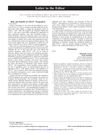
research Risk and Benefit of CD133+ Progenitors
CD133+ progenitor cells have therapeutic potential for diabetic ulcers and heart attack recovery, with manageable risks.
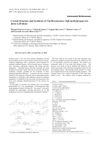
research Crystal Structure and Synthesis of 17α-Hexanoyloxy-16β-Methylpregna-4,6-Diene-3,20-Dione
A new compound that could treat various androgen-related conditions was created and analyzed.

research Bexxar, Iodine I 131 Tositumomab, Effective in Long-Term Follow-Up of Non-Hodgkin's Lymphoma
Bexxar is highly effective as a first treatment for non-Hodgkin's lymphoma, with most patients alive and many in remission after eight years.
research Gasdermin A3-Mediated Cell Death Causes Niche Collapse and Precocious Activation of Hair Follicle Stem Cells
Gasdermin A3 causes hair follicle stem cells to activate too early, leading to hair loss.

research New Drug Targets and Research Methods for Androgenetic Alopecia
The document concludes that more research is needed to create specific drugs for treating male pattern baldness.
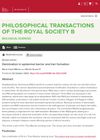
research Deimination In Epidermal Barrier And Hair Formation
Enzymes that change arginine to citrulline are important for skin barrier and hair formation, and their malfunction can lead to skin conditions and hair disorders.
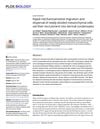
research Rapid Mechanosensitive Migration and Dispersal of Newly Divided Mesenchymal Cells Aid Their Recruitment into Dermal Condensates
Newly divided skin cells quickly move to join skin structures due to tissue tension and specific signals.

research Failures of DNA Methylation Clocks and Development of a Noise Barometer for Measuring Epigenetic Pressure of Aging and Disease
Elastic Net DNA methylation clocks are inaccurate for predicting age and health status; a "noise barometer" may better indicate aging and disease.